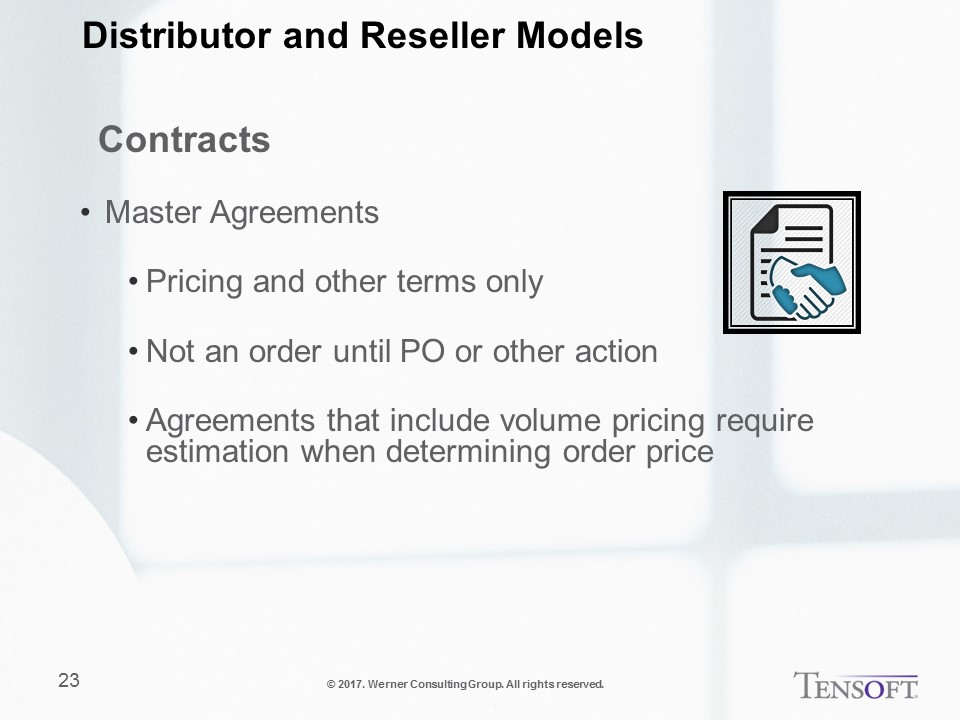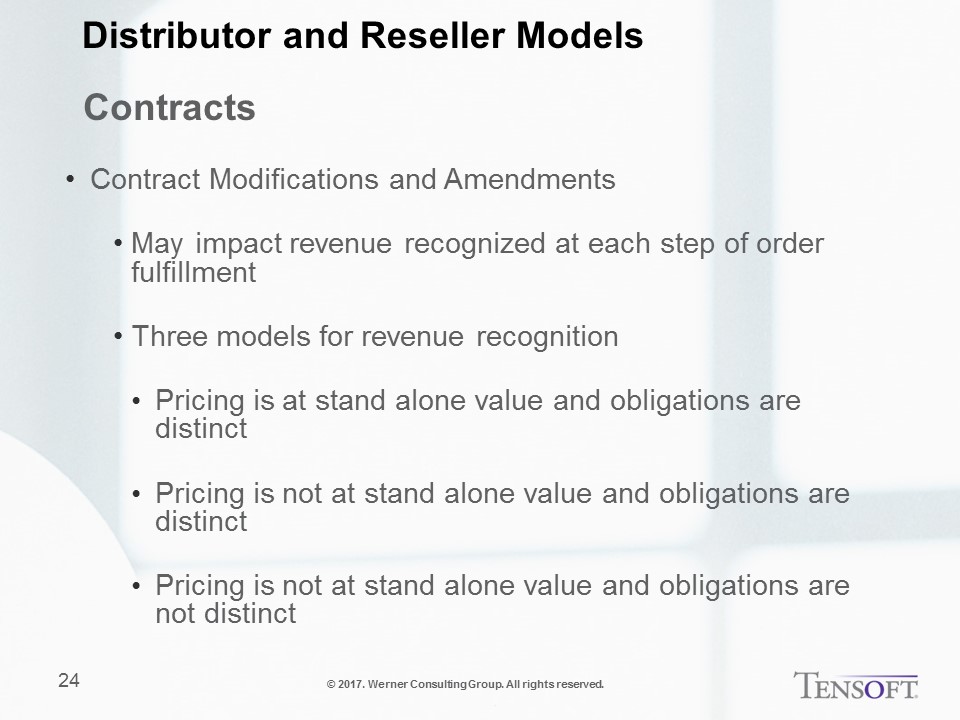The last in the series on the ‘Impact of ASC 606’ that a re-seller or a distributor business should be aware of with potential impacts to their business model is: “Modifications and Amendments to Contracts.” [The following is a partial transcription from the webcast, “Implementing ASC 606: Potential Changes to Distributor and Reseller Based Revenue Recognition” hosted by Tensoft and presented by Jeffrey Werner. To view the recorded webcast in full, click here.]
“Our third topic for the on-demand webcast today is contracts and how those are viewed and changed under ASC 606, particularly when a contract is amended or modified. Companies that use a distribution or reseller business model often have master contracts. They also have contracts that get modified and amended over the course of time. So we’ll look at some of the factors in that.
Master agreements typically are only pricing agreements that have the prices in them and other terms like rights of return, intellectual property, payment terms, those sorts of things. Typically, a master agreement, a pricing agreement, is not an order until the customer submits a PO or a contract. But if those master agreements include variable pricing, for example pricing tiers, you may need to consider those various levels of pricing when you determine what the estimate of the price is for each individual order. Because if you expect the customer to buy into the second or third tranches where the prices are lower, you may need to use the average price for what you expect to get, rather than the price for each tier of the volume pricing arrangement.


So, that’s a change from current GAAP practice where you would most likely recognize revenue for each tranche at that tranche price. If you had discounts as they bought more, you would only apply those discounts to the future orders. Where, if at the outset of the arrangement under ASC 606, you expected the customer to buy into the tranches that had lower prices, you need to consider that when you estimate what the price is that you’re going to get from the first orders.
Also, ASC 606 provides some guidance about contract modifications and amendments. The criteria for how you evaluate a modification or amendment to an existing contract depends on two factors that combine in three different ways. The two factors that you consider are:
1) Are the original contract and the modification at stand-alone value?
2) Are the items or the obligations in those contracts distinct?”
To learn more, watch the recording here.
Tensoft regularly hosts free training webcasts. If you are interested to keep up with the recent developments in the software industry, sign up here to get alerts for upcoming webcasts.